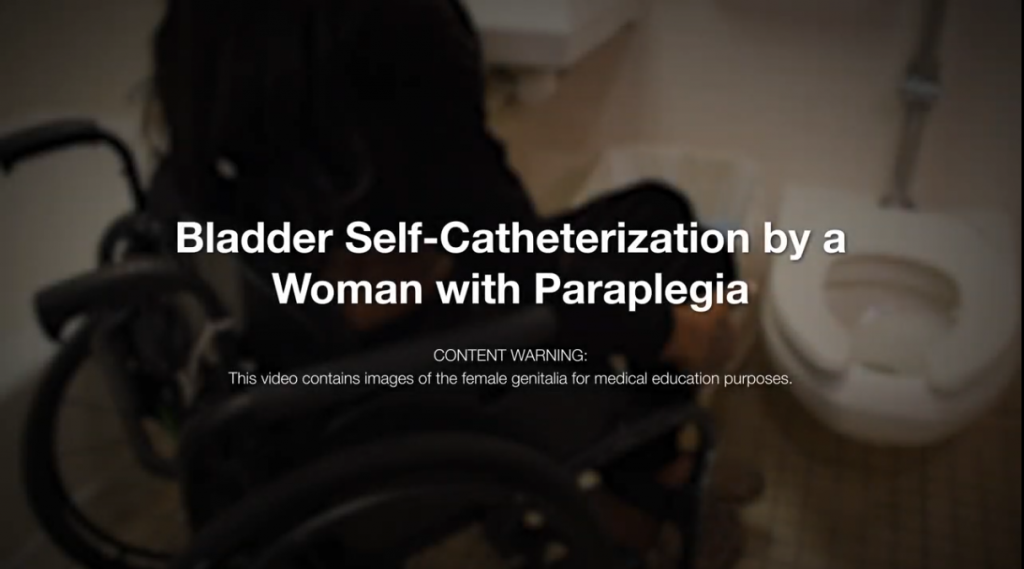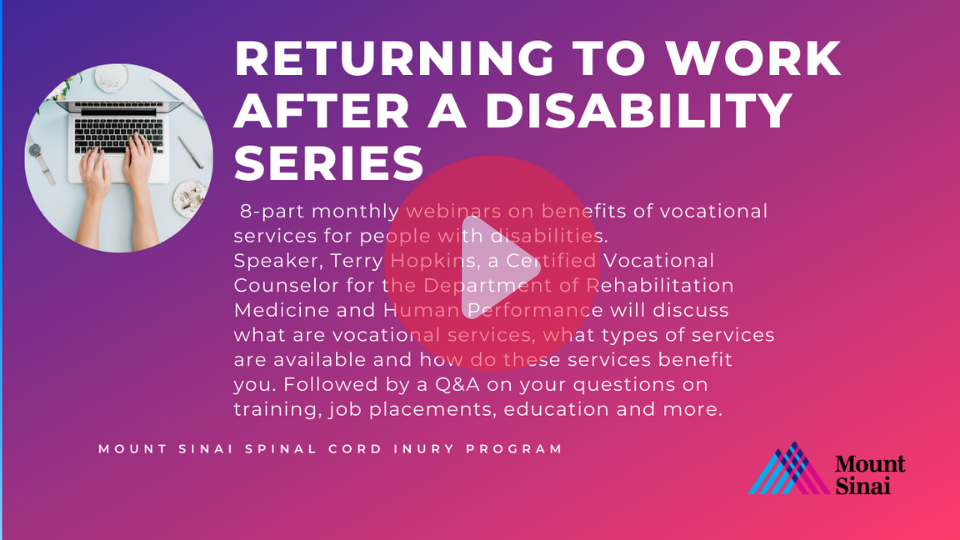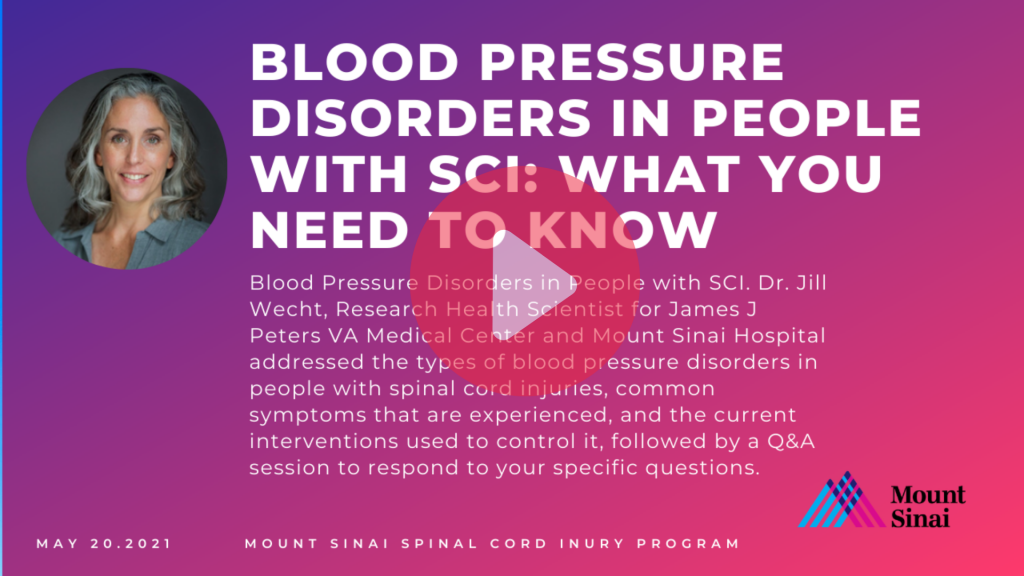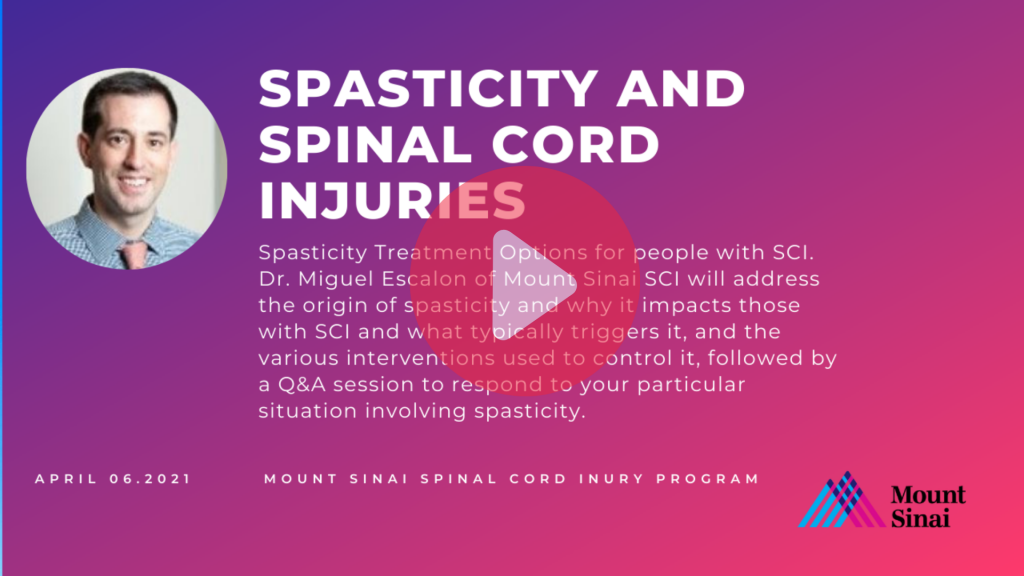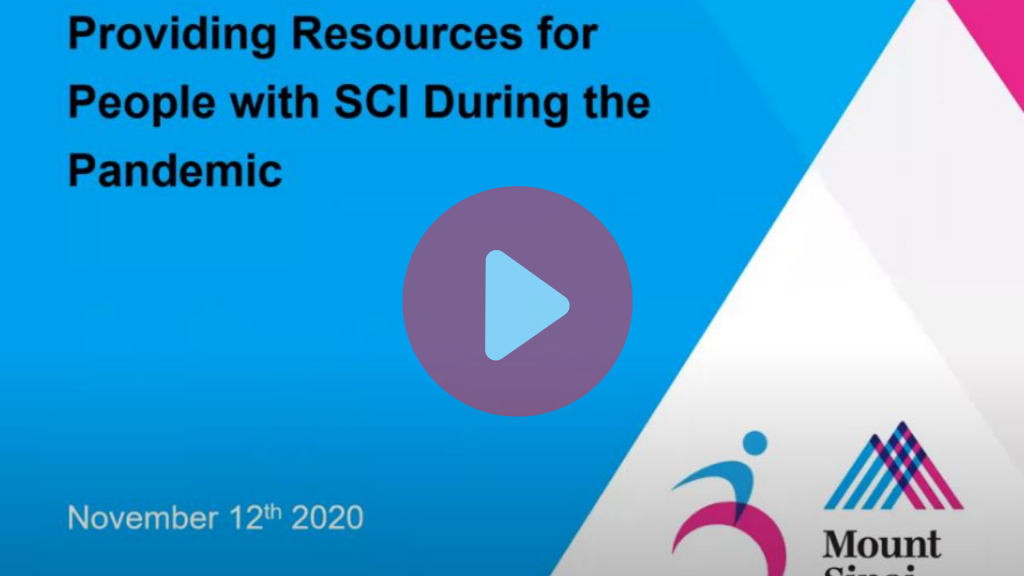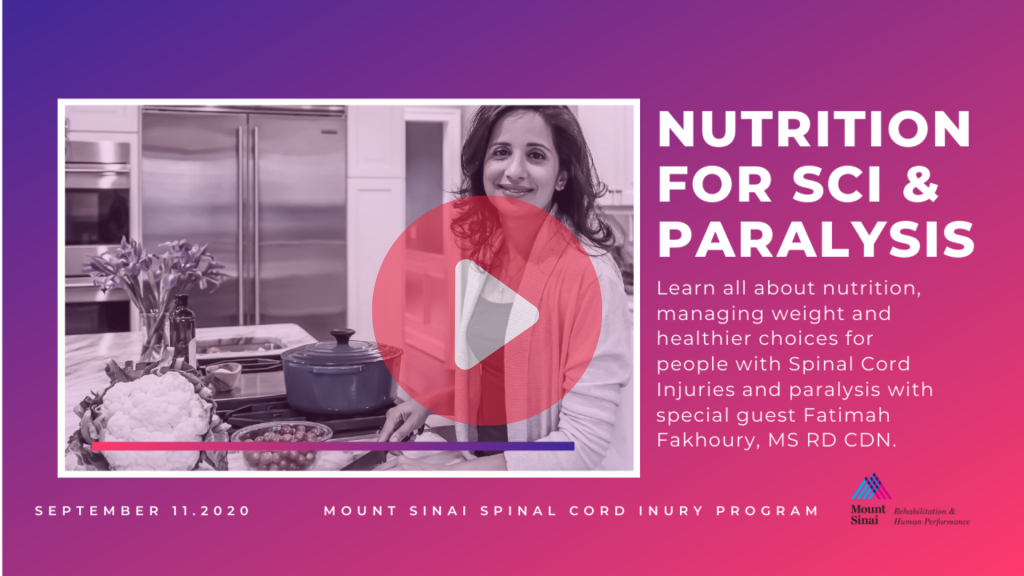The Mount Sinai Spinal Injury Cord Program provides informational videos that address the most prevalent issues within the Spinal Cord Injury (SCI) community.
All our videos can be accessed via our Mount Sinai SCI YouTube Channel.
Bladder Self-Catheterization by a Women with Paraplegia
This educational video will show you how to self-catheterize your bladder. Its intended audience is females with paraplegia who wish to begin to self catheterize. It should also be useful to clinicians including physicians, nurses, occupational therapists, caregivers, and others who wish to teach females with paraplegia how to self catheterize. The content of this video is based on research evidence and/or professional consensus and has been reviewed and approved by experts from the Spinal Cord Injury Model Systems, funded by the National Institute on Disability, Independent Living, and Rehabilitation research. This information is not meant to replace the advice of a medical professional. You should consult your health care provider regarding specific medical concerns or treatment.
Bladder Self-Catheterization by a Male with Limited Hand Function
This educational video will show you in 8 steps how to self-catheterize your bladder. Its intended audience is males with limited hand function who wish to begin to self catheterize. It should also be useful to clinicians including physicians, nurses, occupational therapists, caregivers, and others who wish to teach males with limited hand function how to self catheterize. The content of this video is based on research evidence and/or professional consensus and has been reviewed and approved by experts from the Spinal Cord Injury Model Systems, funded by the National Institute on Disability, Independent Living, and Rehabilitation research. This information is not meant to replace the advice of a medical professional. You should consult your health care provider regarding specific medical concerns or treatment.
Returning To Work After A Disability Series
8-part monthly webinars on benefits of vocational services for people with disabilities. Speaker, Terry Hopkins, a Certified Vocational Counselor for the Department of Rehabilitation Medicine and Human Performance will discuss what are vocational services, what types of services are available and how do these services benefit you. Followed by a Q&A on your questions on training, job placements, education and more.
Blood Pressure Disorders in People with SCI
Virtual presentation that addressed Blood Pressure Disorders in People with SCI. Dr. Jill Wecht, Research Health Scientist for James J Peters VA Medical Center and Mount Sinai Hospital addressed the types of blood pressure disorders in people with spinal cord injuries, common symptoms that are experienced, and the current interventions used to control it, followed by a Q&A session to respond to your specific questions.
Spasticity and Spinal Cord Injuries
Mount Sinai SCI was pleased to provide a virtual presentation addressing Spasticity Treatment Options for people with SCI. Miguel Escalón MD, Vice Chairman, Department of Rehabilitation Medicine and Human Performance addressed the origin of spasticity and why it impacts those with SCI and what typically triggers it, and the various interventions used to control it, followed by a Q&A session to respond to particular situations involving spasticity.
Providing Resources for People with SCI During the Pandemic
Mount Sinai SCI was pleased to host “Providing Resources for People with SCI During the Pandemic” webinar to address unique issues that need to be considered for individuals with a spinal cord injuries such as extra hygiene precautions and emergency preparedness during the COVID-19 Pandemic.
Nutrition for SCI and Paralysis
Mount Sinai SCI was pleased to host “Nutrition for SCI and Paralysis” with special guest Fatimah Fakhoury, MS RD CDN, as part of a virtual presentation to address nutrition, managing weight and healthier choices for people with Spinal Cord Injuries and paralysis. Learn more about Fatimah paralysis nutrition program that gives people living with paralysis a wealth of information on proper nutrition after SCI. Topics include optimal nutrition for paralysis, portion control & making better food choices, meal planning & prepping, improving bowel issues, maintaining strong skin, supplements, and more. For more information and to apply for the 1:1 or group program, visit www.paralysisnutrition.com. Fatimah Fakhoury, MS RD CDN is a Registered Dietitian providing virtual nutrition services to people living with paralysis and spinal cord injury. She was inspired by her husband, Ray, who was injured in a car accident many years ago and living with a C6/7 incomplete spinal cord injury, to focus on providing nutrition services specifically to people living with paralysis, who are often marginalized and left out of popular wellness culture. Fatimah empowers people living with paralysis to manage their weight and relieve bowel issues by providing support to make healthier choices, without restrictive dieting. By combining her professional expertise as a dietitian with her personal experience of being married to someone living with a spinal cord injury, her nutrition program has allowed people with paralysis to regain control of their weight and bowel issues so they can feel more confident and live longer, happier lives.

